1. Married… with Children
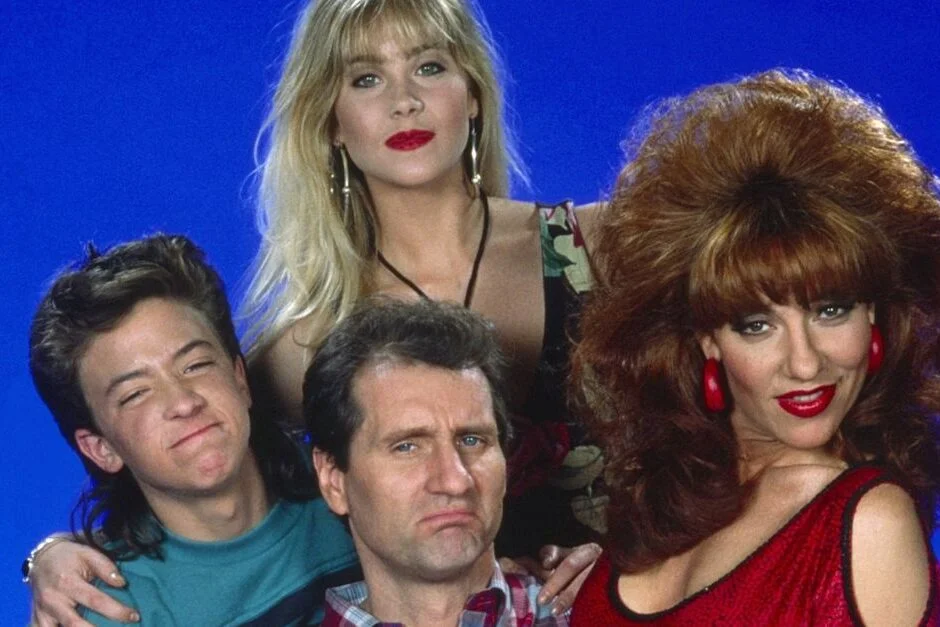
It’s hard to imagine today, but Married… with Children was considered a shocking breath of fresh air when it first aired in 1987. The show, which followed the dysfunctional Bundy family, broke boundaries with its unapologetic portrayal of a miserable, crass suburban dad, Al Bundy, played by Ed O’Neill. Viewers were stunned by the relentless sarcasm, adult humor, and the portrayal of a completely unglamorous family life. Al’s treatment of his wife, Peg, and the often crude humor made this sitcom a lightning rod for controversy, with many calling it too negative and vulgar.
Despite the backlash, Married… with Children became a cult classic, revolutionizing sitcoms with its irreverence. The show tackled topics like sex, consumerism, and relationships, but did so with a biting sense of humor that left little to the imagination. It wasn’t just the content but the way it flipped traditional family values on their head. The show paved the way for later boundary-pushing comedies like The Simpsons and South Park, making its mark as one of the most controversial sitcoms of the late ’80s.
2. The A-Team
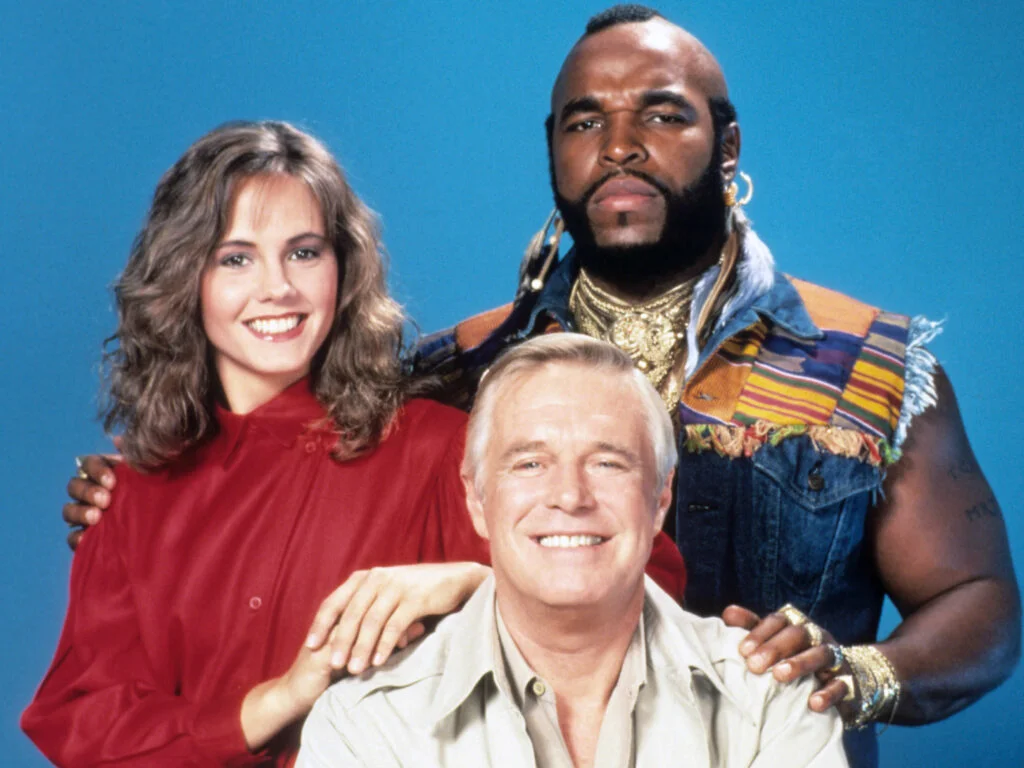
When The A-Team first hit the small screen in 1983, it was more than just an action-packed series—it was a cultural touchstone. The show’s heroes, a group of ex-soldiers on the run, were both beloved and criticized for their unconventional approach to justice. The controversy came from the sheer violence and destruction that took place in nearly every episode, with no real consequences for the characters. Guns were fired, buildings exploded, but somehow, no one ever seemed to get seriously hurt. Critics pointed out the questionable morality of the show, especially its portrayal of violence as an entertaining, almost glamorous, solution to problems.
Despite the criticism, The A-Team became a fan favorite and enjoyed a long run, lasting five seasons. It resonated with viewers who loved its over-the-top action and catchy theme song. The show also sparked conversations about the role of violence in entertainment and raised questions about what was acceptable for TV audiences. Although it was a prime-time hit, The A-Team remained controversial for its unapologetic, action-heavy style, which clashed with the more reserved content of traditional ’80s television.
3. Soap
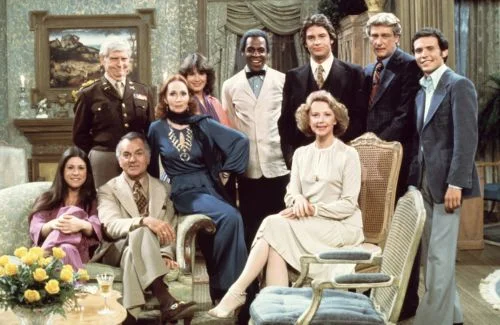
Premiering in 1977 but running well into the ’80s, Soap was a primetime comedy that mixed farce with dark humor, pushing boundaries in a way few shows had before. The series featured a wildly eccentric plot that included affairs, murders, and psychological issues—often tackled with a comedic twist. One of the most controversial aspects of the show was its portrayal of a gay character, Jodie Dallas, played by Billy Crystal. At a time when LGBTQ+ representation was almost nonexistent on TV, Soap introduced the first openly gay character in a prime-time sitcom, sparking both outrage and praise.
Soap didn’t just challenge social norms regarding sexuality—it also dared to address issues like infidelity, mental illness, and other taboo topics. The show’s outrageous humor, combined with its often outlandish storylines, made it a lightning rod for critics. Even though it was a comedy, Soap made some viewers uncomfortable with its unflinching exploration of subjects that were still considered off-limits in mainstream TV. Despite its controversies, Soap ran for four seasons and became a milestone in TV history for its bold approach to storytelling.
4. Pee-wee’s Playhouse
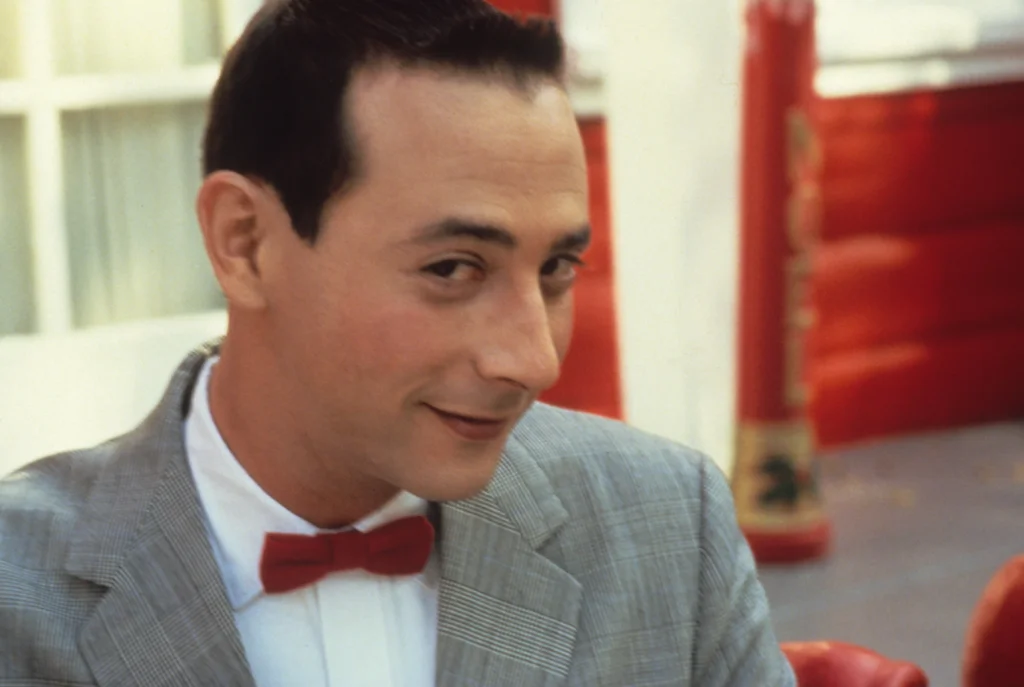
In the mid-1980s, Pee-wee’s Playhouse was a children’s show that drew as much attention for its eccentricity as it did for its boldness. Pee-wee Herman, played by Paul Reubens, was a quirky, childish man with an outrageous sense of humor that was unlike anything seen on children’s TV before. The show, with its colorful set and bizarre characters, was deliberately designed to be surreal and a little bit strange. However, what really sparked controversy were Pee-wee’s often suggestive jokes, oddball behavior, and the occasional moments that seemed aimed more at adult viewers than kids.
Critics were divided over whether the show was inappropriate for its young audience, with some accusing it of being too weird and edgy for children’s programming. The controversies reached their peak in 1991 when Paul Reubens was arrested for indecent exposure, causing many to retroactively question Pee-wee’s Playhouse’s more questionable content. Despite the scandals, Pee-wee’s Playhouse remains a cult classic for its innovative approach to children’s entertainment, blending adult sensibilities with innocent whimsy in a way that was revolutionary for its time.
5. Cagney & Lacey
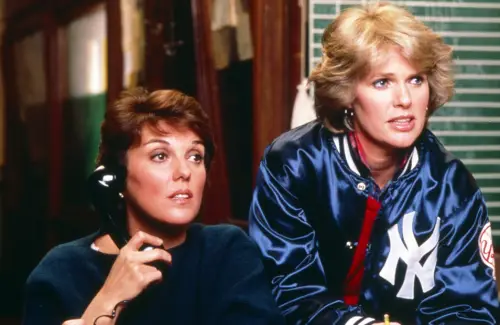
Running from 1982 to 1988, Cagney & Lacey was a groundbreaking show for its portrayal of two strong female protagonists working as detectives in New York City. What made the show so controversial was its refusal to lean into typical feminine stereotypes. The show’s central characters, Chris Cagney and Mary Beth Lacey, played by Sharon Gless and Tyne Daly, were tough, independent, and unapologetically competent in their professional and personal lives. At a time when most female TV characters were either damsels in distress or supporting roles, Cagney & Lacey pushed the boundaries of what women could be on television.
The controversy didn’t stop there. The series also addressed sensitive topics like sexism, abortion, and family struggles, all while providing a realistic portrayal of the challenges women faced in the workplace. Some viewers found the show’s frank approach to these issues uncomfortable, while others praised it for its honesty and complexity. Cagney & Lacey became a touchstone for female empowerment on TV, but its boldness in tackling such heavy subjects left it too controversial for some audiences at the time.
6. Dynasty
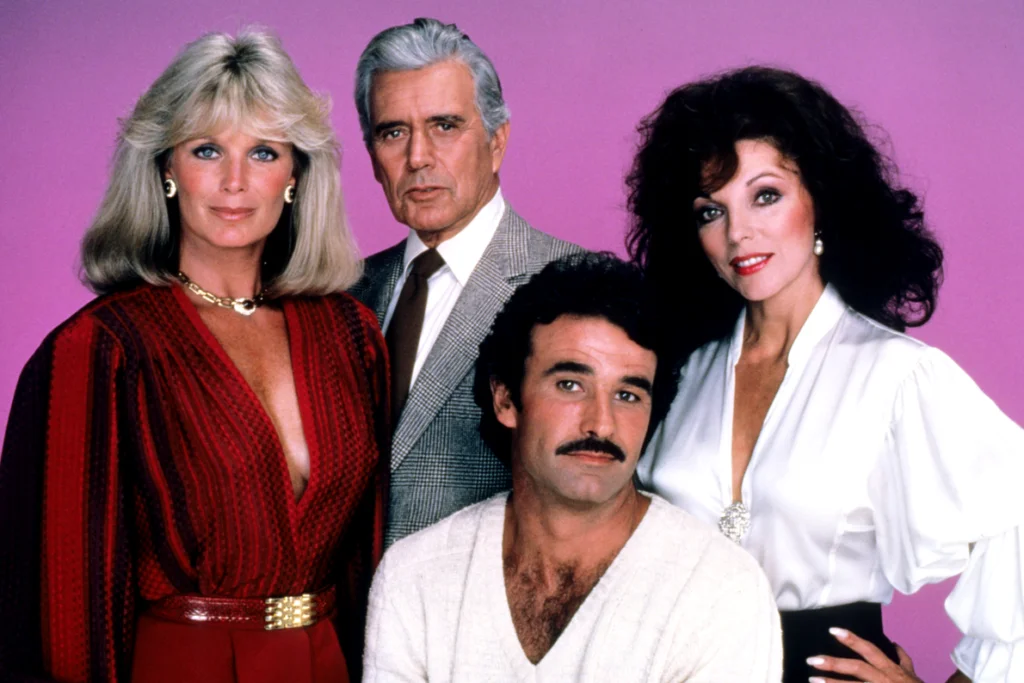
In the world of ’80s primetime soap operas, Dynasty stood out for its outrageous plots and glamorous yet morally dubious characters. The show, which aired from 1981 to 1989, was packed with over-the-top drama, from catfights to murder plots. What made Dynasty so controversial was its unapologetically extravagant portrayal of wealth and power, as well as the frequent use of shocking twists to keep audiences on the edge of their seats. The show was criticized for being excessively materialistic and for its portrayal of family dynamics that were far from ideal.
The most controversial moment of the series came in 1984 when the show killed off its lead character, Alexis Carrington, played by Joan Collins, only to later reveal that the whole death was a dream. This moment, which became one of the most infamous plot twists in TV history, left audiences reeling and outraged. Despite the backlash, Dynasty thrived, becoming a massive success and cementing its place as one of the most daring shows of the ’80s. It wasn’t just the drama that made Dynasty so controversial—it was its audacious take on excess, betrayal, and the dark side of the American dream.


